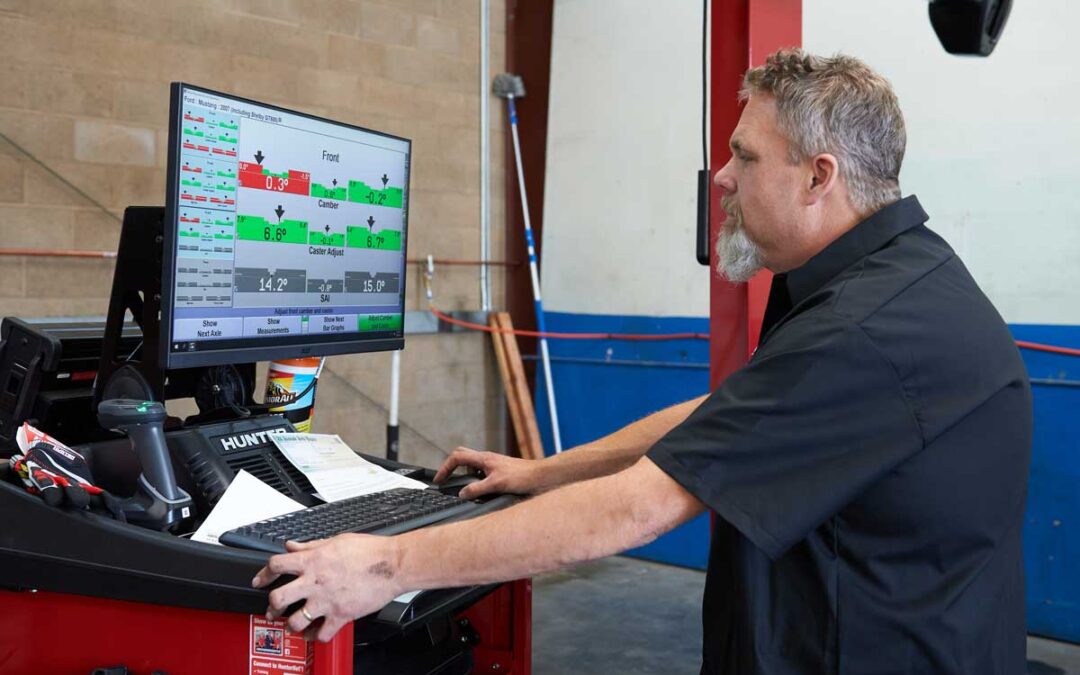A vehicle tune up is a kind of preventive maintenance that ensures your vehicle will stay roaring down the highways for years to come. As such, vehicle maintenance involves checking and overhauling a number of your vehicle’s systems.
Are there short-term benefits?
There sure are. The best part about vehicle tune ups is that you don’t have to wait for the long-term benefits to materialize since vehicle tune ups improve performance and gas mileage in the short term.
Put another way, going too long without changing your spark plugs and filters can tank, so to speak, your fuel economy!
How long will a tune up actually take?
Changing out the oil, replacing filters, and swapping out sensors (e.g., oxygen sensor) can all be done surprisingly quickly considering how many boxes need to be ticked.
The fact that the certified mechanics at All Around Auto Repair use electronic dagnostic tools to interface with your vehicle’s onboard system means that problems will be quickly detected and fixed on the spot.
Although tune up times can vary, anticipate your tune up taking between two and four hours.
What does a comrpehensive tune up include?
Remembering that a tune up is a kind of preventive maintenance performed on your vehicle, mechanics performing a tune up will seek to optimize a number of your vehicle’s systems (e.g., brake and exhaust).
In short, a tune up will replace or overhaul all of the systems and parts on your vehicle prone to wear-and-tear damage.
Therefore, everything from your spark plugs, fuel filter, preventive maintenance, and distributor cap to wheel alignment (a.k.a., tracking) and tire rotation is on the table.
How much will this all cost me?
Minimal tune ups will include the essentials like changing out the spark plugs, oil, and checking the tires whereas more comprehensive tune ups will include checks of multiple systems (e.g., braking, emissions, fuel, and ignition).
Because hourly labor rates, the make and model of your vehicle (plus the year), and the number of parts needed to get your vehicle in tip-top shape will all impact prices, the costs can vary considerable.
In general, costs will be most affordable for newer vehicles that only need modest repairs and minimal maintenance touch-ups, which translates into low costs for replacement parts and fewer hours in terms of labor.
Moreover, the number of miles on a vehicle – highly related to the make, model, and year of a vehicle – will likely inform the kinds of work that you’ll need done.
Older vehicles have more obscure parts that are harder to find, so that might increase the cost.
What kinds of preventive maintenance is required?
Your owner’s manual is your true North when it comes to determining what kinds of preventive maintenance are required at which mile markers for your vehicle.
Now, if your owner’s manual was last seen around the second Bush administration, then there’s no need to panic since All Around Auto Repair has a shop manual that will provide the technicians the information they need for your vehicle’s make, model, and year.
Your owner’s manual or the shop manual at All Around Auto Repair will list a series of recommended and mandatory maintenance to be undertaken at certain time/mile markers.
Recommended maintenance is nice to have but not as essential as mandatory maintenance, without which your vehicle will definitely start to break down prematurely.
What happens when you skip regular preventive maintenance?
The answer – a lot of bad stuff. As but one example, consider an air filter. This is relatively simply to replace at All Around Auto Repair, but if you skip a tune up then you might be left with a dirty air filter that screws up the air-fuel mixture of your engine.
Don’t let something like that happen to you. Schedule a tune up at All Around Auto Repair and keep your vehicle on the road for longer. Remember that some auto maintenance is mandatory, but the recommended kind will still help out your vehicle.


